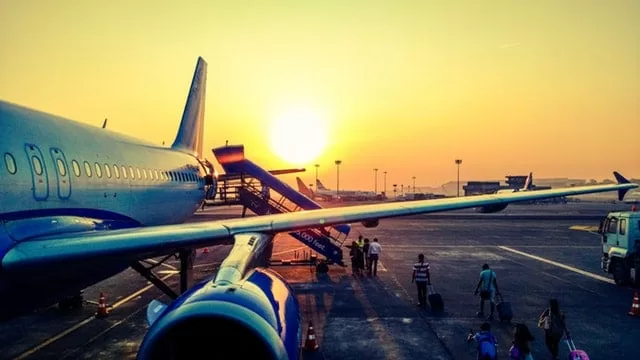Lake Charles is a great place to live, but everybody needs to get away occasionally in order to recharge their batteries. Vacations are a great way to unwind, but for people with hearing loss, a little advance planning is necessary before hitting the road.
Making the Most of Hearing Aids when Traveling
Whether you’re vacationing on a lush tropical island or traveling to a trade show in Scranton for business, your hearing aids will help make your travel experience more enjoyable. If you wear hearing aids in Lake Charles and are traveling, be sure to do the following:
- Pack extra batteries. You can expect most hearing aid batteries to last between 5-14 days. In case they die on you at an inopportune moment, pack enough to last you the entire trip. To err on the side of caution, bring more than you think you’ll need. Cold weather this time of year can sap battery life. This won’t be such a problem in Tahiti but if you do find yourself in Scranton, you’ll be thankful you brought extras!
- Arrive to your departure point early. Whether you’re traveling by plane, train, bus or cruise ship, it’s best to arrive at your departure point early. This will allow you to make special arrangements with the boarding agent, gate host, flight attendant or Captain Stubing if necessary and will ensure you don’t miss boarding calls and other announcements.
- Take advantage of your smartphone. Texting lets you keep in touch with traveling companions and can be a lifesaver if you accidentally get separated. In addition, apps can help provide access to public resources and assist you with reservations, maps and travel alerts.
- Leave your hearing aids in place. Some people worry about exposing their hearing aids to x-rays, but the equipment used in security checkpoints won’t cause any harm to your devices. It’s a good idea to let the TSA agent or security personnel know you are wearing them in case they trigger the metal detector; doing so may prevent an embarrassing pat-down.
- Don’t put hearing aids in checked bags. Packing hearing aids in checked luggage is a risky proposition. If you’re headed to Montego Bay and your baggage ends up in Modesto, you’ll find yourself without your hearing aids for much (if not all) of your trip. Keep them with you in your carry-on luggage instead. Even if there’s an upcharge, that’s a small price to pay for peace of mind.
- Protect your hearing aids from moisture. They say it never rains in Southern California, but why risk it? Moisture can damage your hearing aids, so consider buying a waterproof case and dehumidifier, even if you are traveling to a supposedly dry climate. Mother Nature has a way of springing surprises on you!
- Book hearing aid-friendly lodging. Many lodging facilities offer amenities for the hearing-impaired. When booking a room, features such as closed-caption televisions, looping systems and visual alerting devices can help make your stay more pleasant.
- Print all important documents in advance. Bringing along printed copies of reservation acknowledgments, travel itineraries and maps will help ensure communication difficulties don’t prevent you from getting from Point A to Point B safely and soundly. This is especially important if you’re traveling to a foreign country where the native language differs from yours.
Contact your Lake Charles audiologist for more information on how to travel with hearing aids.

